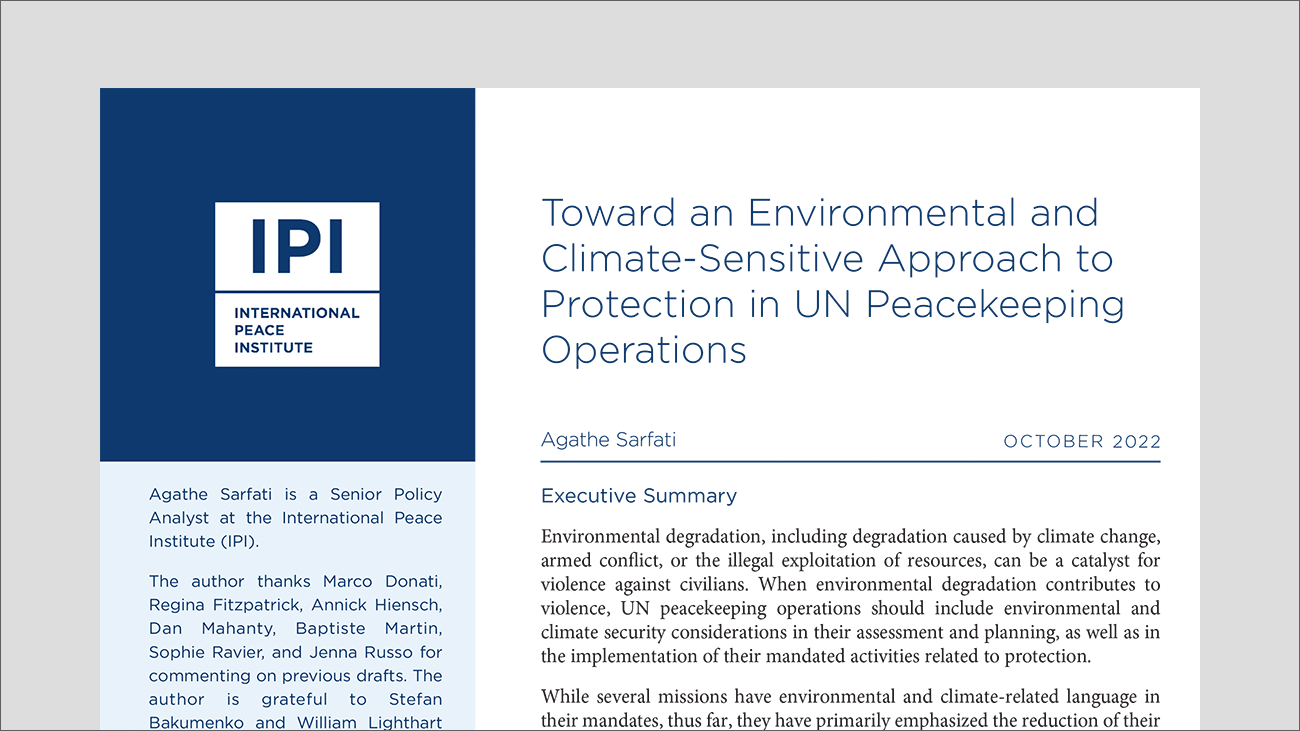
Environmental degradation, including degradation caused by climate change, armed conflict, or the illegal exploitation of resources, can be a catalyst for violence against civilians. While addressing environmental degradation goes well beyond the mandates of UN peacekeeping operations, missions are increasingly focusing on climate-related security risks, and several missions have environment and climate-related language in their mandates. Overall, however, missions’ work in this area remains ad hoc.
This issue brief discusses how peacekeeping operations can better factor environmental and climate-related security risks in planning and implementing protection-related activities. It provides an overview of the impact of environmental degradation on armed conflict and the impact of armed conflict on environmental degradation. The paper then highlights current best practices for considering the environment and climate in protection-related activities in peacekeeping.
The brief concludes by suggesting that UN peacekeeping operations include environmental and climate security considerations in their assessment, planning, and implementation of mandated activities related to protection through a whole-of-mission approach and in close partnership with the UN country team and the host government. It also suggests that missions continue exploring opportunities for new approaches, including environmental peacebuilding and mediation.







